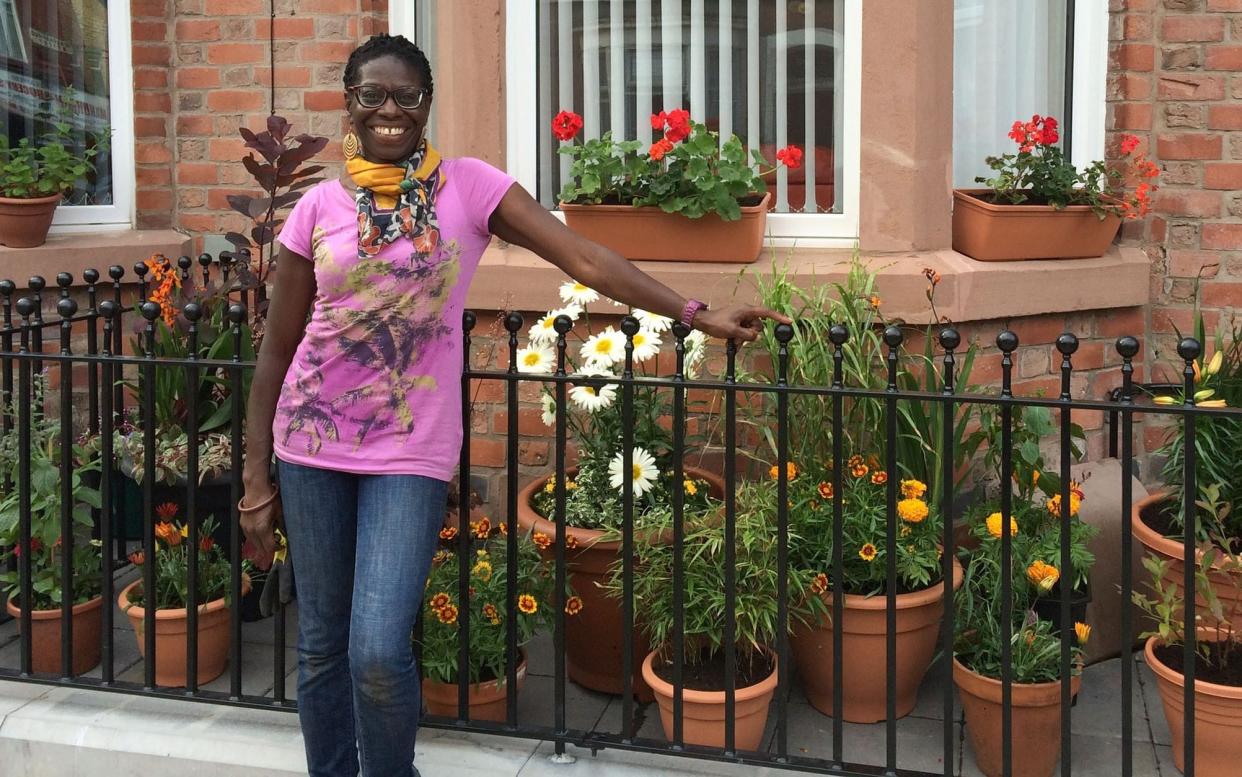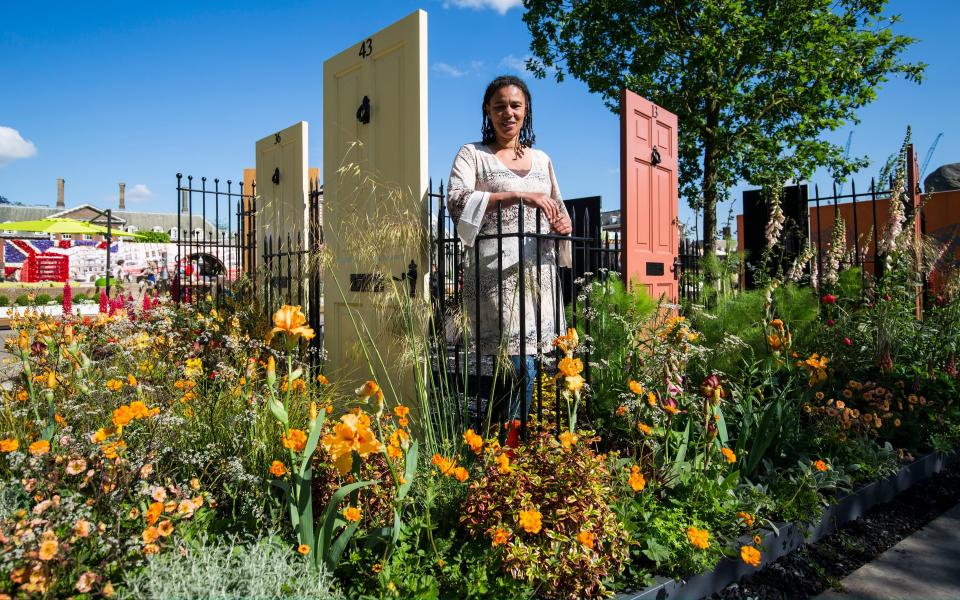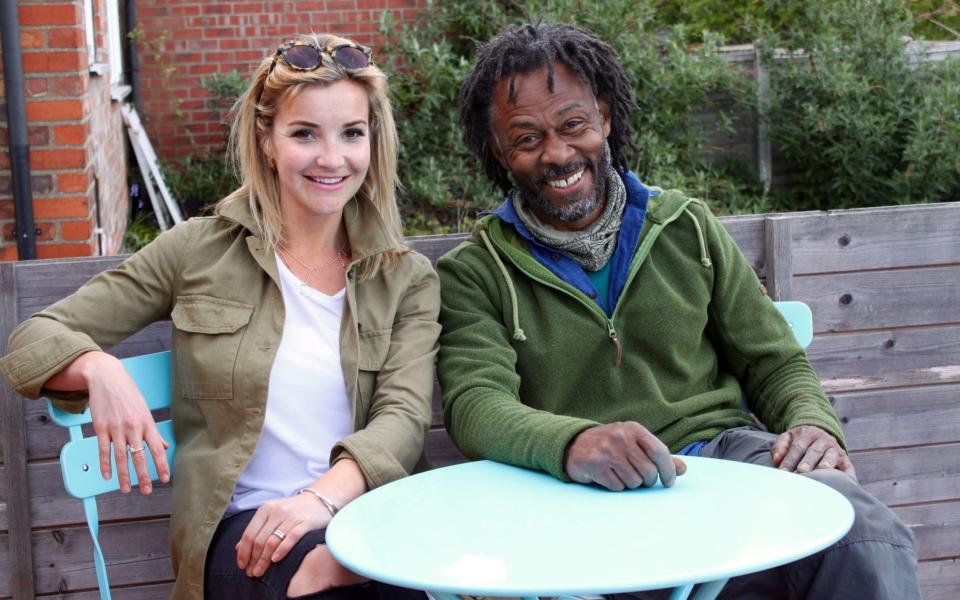'Black kids say to me, what's a garden designer?' Why it's time to solve horticulture's diversity problem

In 2016, Juliet Sargeant became the first black designer to create a garden at the RHS Chelsea Flower Show. Her Modern Slavery Garden won gold.
Sargeant said at the time: “I don’t come across any other black garden designers when I’m out and about. But that doesn’t mean black people aren’t interested in gardening and design. I think they do not culturally feel part of the horticultural scene.”
Now, after the death of George Floyd in Minneapolis in the US and subsequent Black Lives Matter anti-racism demonstrations in the US and UK, many industries are under the spotlight due to a perceived lack of diversity, from food to fashion. Gardening is among them, too.
Flo Headlam, who became the first black Gardeners’ World presenter in 2017, says: “It is the moment to be talking about diversity in all walks of life and industries.”
The RHS is keen to crack the diversity issue and in August a £45,000 a year diversity and inclusion manager will start work to create equality initiatives. An RHS spokesperson says: “We are under no illusions and realise there is much more for the RHS and the industry to do.”

The National Trust is also reviewing policies and works in partnership with Creative and Cultural Skills (ccskills.org.uk) to encourage a wider range of young people to consider the Trust as a possible future career.
On television, high-profile figures such as Flo Headlam and Arit Anderson (Gardeners’ World/Garden Rescue), and Danny Clarke (The Instant Gardener), and designers Juliet Sargeant and Cleve West at Chelsea, have started to give gardening a more diverse public profile.
On social media, too, young gardeners from a range of ethnic minorities are using innovative means to promote the mental and physical health benefits of growing plants.
Grow2Know is a new non-profit Community Interest Company created by people living near London’s Grenfell Tower, where 72 people were killed by fire in 2017. The project, backed by civil engineers Arcadis, is designed to empower young people through horticulture, while creating a more inclusive environment.
Tayshan Hayden-Smith, who has Jamaican, Italian, Egyptian and Kuwaiti heritage, is founder and director. In response to Grenfell, he says: “My natural feeling was to start gardening and doing up neglected spaces in the community and turning them into beautiful places.”
He says: “People of diverse backgrounds are a completely unrepresented space in the horticulture industry. Young people should feel encouraged to explore careers in horticulture for the physical and mental health benefits.
“You can’t see anyone in the [gardening] industry you can relate to. I’m a footballer – I see people from similar backgrounds playing and that inspired me.
“It’s all about relatability. Gardening becomes about certain people from a certain background or class and for people of an older generation and that is not really encouraging for the younger generation.
“There are many ways of reaching young people. The industry is not engaging young people online. For me [gardening] is not really being put in the right place.”
Hayden-Smith is in conversations with rapper Akala to put poetry/spoken word over animations linked to gardening and has a project connected to calisthenics and growing food for post-workout meals.
“If I go to young people and say ‘let’s go gardening’ they will say ‘no’. But there are more creative ways - for instance incorporating art or fitness. You have to be very subtle about it and almost complement it with other things and edge it in.”

Chayo Melara-Page, 17, has made a Youtube rap video as ‘Bicho Cezar’ for the Vegan Organic Network, filmed on his mum and stepdad’s Manchester allotment. During childhood visits to his father’s farm in El Salvador he developed his love of growing plants: “I’ve always loved plants and gardening and been interested in nature. As a kid, I didn’t play games inside, I climbed trees.
“But I don’t believe gardening is very white. In the UK, there’s an imbalance of attention in the media, so you probably only notice the white side of things. But in Rastafarian culture they use a lot of herbs and in Far Eastern culture, too.
“Working as a primary school teacher, my mum did Forest Schools, taking kids into nature. You could reach out more into community centres with projects [like that].
“Society views manual labour as not necessarily as valuable as jobs where you get more money for less work, but it’s important to realise the body has muscles and the body comes from nature and it’s good for the mind or body to work outside. Allotments can actually save you a lot of money so growing can have financial benefits. I’ve just left college and if a job was available I’d love to take it.”
In 2015, garden designer Danny Clarke, aka The Black Gardener, became the first black horticulturist to be given a TV series, The Instant Gardener. He is also a director at Grow2Know.
“I’m working on the community space around Grenfell… a man there who witnessed the fire turned to horticulture as a way of dealing with the trauma. When he first started doing it he felt out of place because of his ethnicity. He didn’t feel comfortable and he felt he shouldn’t be doing it and that he didn’t have any black role models.
“I’ve had comments on Twitter saying that until they saw me they didn’t know black people gardened for a living. I work with Provender Nurseries and they say, out of their thousands of clients, they can count on one hand the amount that are black.
“Talking to black and Asian gardeners, they say it may be a hangover from the days of slavery where working the land was seen as servile. Parents now want children to get a respectable job like a lawyer or doctor.
“And you don’t really make much money being a professional gardener. That could be a big factor why [horticulture] doesn’t appeal and it’s not as diverse as it could be.
“I always feel when I see black gardeners on TV it’s almost a token gesture and it’s not very representative. It’s almost like a club you’re trying to get into. But I’ve never really seen any prejudice in horticulture. They’re a friendly lot and tend to be nice people because gardening brings out the compassionate and nurturing side and that gives people common ground.”

Garden designer Cleve West, who has won Best Show Garden at Chelsea three times, says: “I’ve been concerned with diversity in the horticultural world more or less since I started as a garden designer. I tried having a few conversations a long time ago but they fell on largely deaf and occasionally, patronising ears. It’s sad that it’s taken so long for people to take this seriously but better late than never.
"There is diversity in that people from all ethnic backgrounds garden in the UK but they are found in allotments and inner-city community gardens.
“I was lucky enough to have lived on Exmoor as a teenager and was later inspired by an aunt with a large garden in West London. Most BAME children won’t be so fortunate so making gardening part of the curriculum in schools would be a step in the right direction.
“The inner city school I’ve worked with in Battersea teaches gardening from the day children arrive aged four and uses the garden for outdoor learning in most subjects. Regardless of whether the children go into horticulture later or not they will have a basic understanding of how nature works. BAME students drawn to horticulture later in life might then have a head-start and be less intimidated.”
Flo Headlam worked for charities including Comic Relief before changing career to become a professional gardener in 2012. She says: “I work for an organisation called Urban Synergy, going into schools in role model mentoring workshops. The format is to present to young people at top end primary and years 10-12 secondary so they see people from different walks of life and a diverse spread of people and professions. I sit down and black kids particularly ask ‘garden designer - what’s that?’ I can see it in their faces ‘is that a job - you do that job?’ If you don’t see it, you can’t imagine it.
“When I was at Capel Manor College doing five years of studies, in that time I encountered two other black women and a Japanese and a Chinese woman - all female and no men. The thing about that college is you can go in at an affordable level but a lot of garden design colleges are much more expensive and feel prohibitive for people on an even half-decent wage.
“There were no barriers to me, but everyone’s story is personal. Maybe it’s the force of my personality which meant that because I wanted to do it, I found a way to do it. It’s not necessarily the same for everybody.
“We’ve all got to fight the cause. The demonstration of global uprising shows there’s a conversation for everyone to be engaged in.”
Matthew Appleby is the Editor of Horticulture Week


